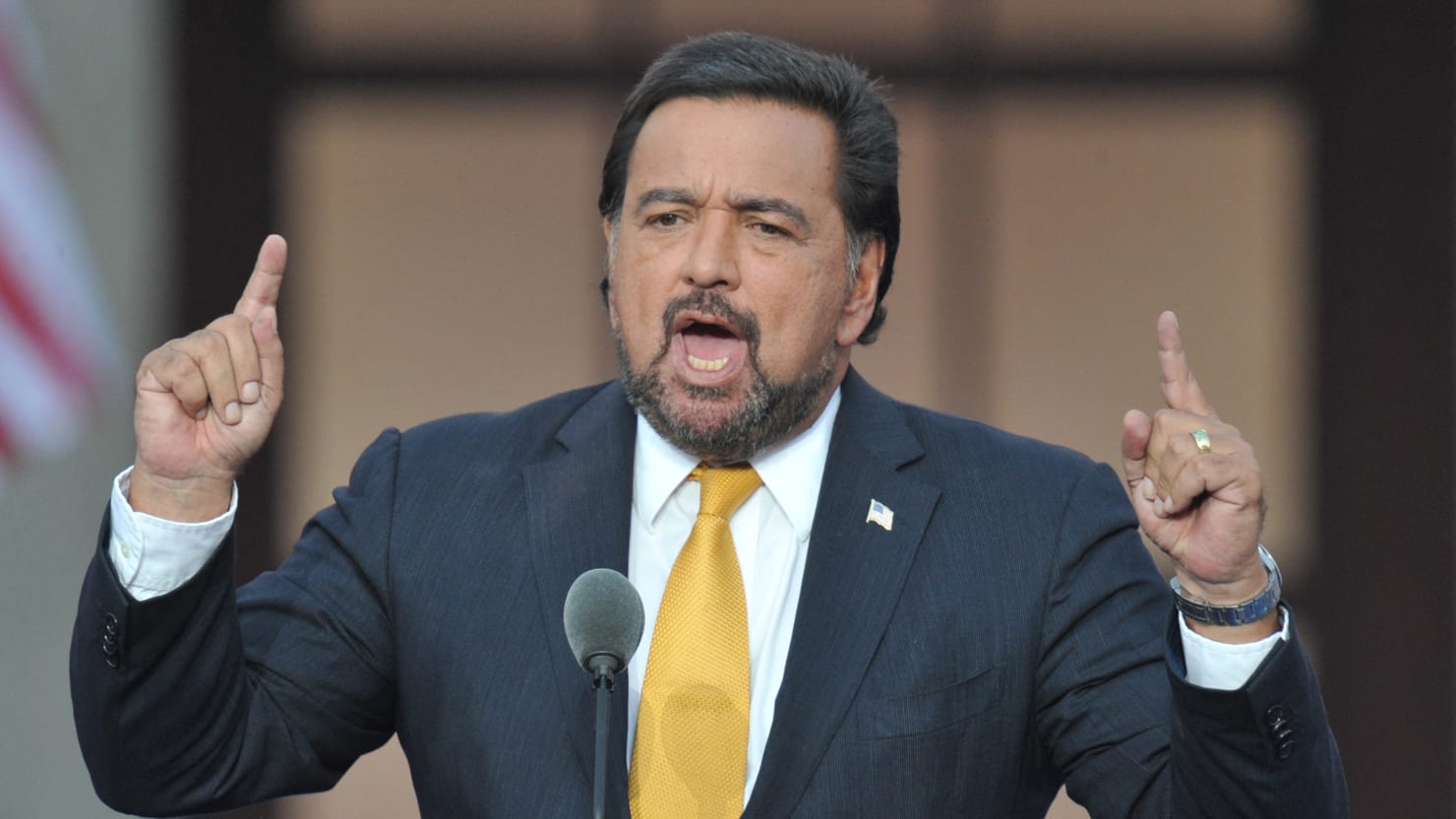Well, here we are again, talking about the debt ceiling.
The Senate will hold a procedural vote Wednesday on a bill to suspend the debt ceiling through 2022, just under two weeks away from October 18, the date on which the Treasury Department estimates the country will default on its debts. But Republicans are likely to block the bill using the filibuster, leaving Democrats with limited options to avert this potential crisis. Economic catastrophe looms in the near distance, and it’s possible that even if we avoid default, the country’s credit could be downgraded and the standoff will likely shake the global faith in the strength of our political and economic systems. All of this drama is also completely unnecessary.
There, now you’re caught up on everything that’s going on. You can close this tab now, reassured that you have enough knowledge to get you through a happy hour conversation where someone brings up The Economy or What Those Clowns In Washington Are Doing Now. You clicked on the article, so I’m reasonably satisfied.
But, in case you want to understand more of the nuance of the situation—or are just concerned about what you’ll say if someone asks you a follow-up question at the aforementioned hypothetical happy hour—feel free to keep reading.
The vote on Wednesday will be a cloture vote, limiting the debate on the bill and paving the way for a final vote. The bill needs to meet a 60-vote threshold to advance, and it’s unlikely that 10 Republicans will agree to do so. (The White House has largely rejected taking any executive action to avert catastrophe, such as minting a trillion dollar coin, which Treasury Secretary Janet Yellen said was “equivalent to asking the Federal Reserve to print money to cover deficits that Congress is unwilling to cover by issuing debt.”)
Why are Republicans so dead-set against voting to suspend the debt limit? They argue that Democrats have control of both houses of Congress and the White House, so they should just raise the debt ceiling by themselves using the reconciliation process. Republicans also say that they don’t want to enable what they paint as Democrats’ impending spending spree, a massive bill that Democrats are already trying to advance through reconciliation, which allows legislation to pass with a simple majority.
A few things here. First, the debt racked up in recent years is due to the actions of both parties, and the majority of it was accumulated under a Republican president, Donald Trump. In 2019, Democrats in Congress agreed to suspend the debt ceiling on a bipartisan basis. Moreover, raising or suspending the debt limit does not incur new debt, but covers previous spending.
It’s true that in 2003, 2004 and 2006 Republicans in the majority raised the debt ceiling without any help from the Democrats in the minority. But in those cases, Democrats did not block Republicans from holding these up-or-down votes. Senate Majority Leader Chuck Schumer attempted last week to set up a vote at a simple majority threshold, but was blocked by Minority Leader Mitch McConnell.
“If Republicans could just get out of the damn way, we could get this done,” Schumer fumed on Tuesday.
In 2004 and 2006 there were unanimous consent agreements to allow the vote to pass with a simple majority, but that outcome seems unlikely to be the case this time around. “That would require getting consent from every single Republican to lower the threshold to 51. I can’t imagine that would happen,” McConnell told reporters on Tuesday. (Of course, 10 Republicans could also just vote to advance the bill during Wednesday’s cloture vote, which would set up the debt limit suspension to pass by a simple majority. But this also seems unlikely to happen.)
Instead, Republicans want Democrats to go through the arduous process of reconciliation. For one thing, raising the debt limit through reconciliation could be politically painful for Democrats, because it would force them to put a number on how high they want to increase the borrowing limit. But it would also take a significant chunk of time, and would still require basic cooperation from Republicans. Democrats are wrong to say that it can’t be done—but it would be really, really inconvenient, and may come too late.
Democratic Senator Chris Murphy also has concerns about normalizing the use of reconciliation to perform this debt ceiling ritual. “If we do the debt ceiling through reconciliation this time, that will become the norm. And it will make it fundamentally more difficult to increase the debt ceiling, because you have to go through this Rube Goldberg-like reconciliation process,” Murphy told reporters on Tuesday. “So that to me is a non-starter.”
As we near October 18, it becomes less and less likely that, even if Democrats did choose to raise the limit through reconciliation, they could successfully do so before the country defaulted on its debts—or even before our credit is downgraded. In 2011, the country’s credit was downgraded for the first time by Standard & Poor’s just because we came close to default.
“I do not think it is possible on a timeline that would not jeopardize the full faith and credit United States,” Senator Mark Warner said on Tuesday. Other Democrats sounded a similar note; Senator Elizabeth Warren said that “reconciliation was never on the table” as an option for raising the debt limit.
“The United States is already on the threshold of a downgrade of its debt. That will have terrible effects throughout our economy and worldwide economy. We don’t have time to mess around any longer,” Warren told reporters on Tuesday.
Republicans are largely holding firm in their refusal to aid efforts to suspend the debt ceiling. “We’re not voting in any way to help raise the debt ceiling. As a group we are all together,” Senator Mitt Romney said. (GOP Senator Lisa Murkowski did wonder to reporters on Tuesday if there was some sort of compromise to be had, saying the country shouldn’t “even come close” to a default.)
In his weekly press conference on Tuesday, Schumer urged Republican senators to drop their filibuster. If Republicans continue to block a vote on suspending the debt ceiling, Democrats may take the extreme route: eliminate the filibuster, or at the very least, create a carve-out for this purpose.
“ have to come to the table and vote for this, or we have to change the rules,” Murphy said.
When asked by reporters if it would be possible to create a carve-out for the filibuster, Democratic Senator Chris Van Hollen answered that “you’re talking to somebody who thinks we should get rid of the filibuster altogether.”
“It could take a one-time exception to save the economy from catastrophe,” Van Hollen, who is the co-sponsor of a bill to eliminate the debt limit, said. (Legislation eliminating the debt limit would be unlikely to pass, but it is an idea supported by several Democrats. “We should eliminate it, because it’s silly,” Senator Brian Schatz told reporters.)
Senator Tim Kaine noted that “leadership will make the call” on whether to create a carve-out. Schumer did not explicitly rule out the possibility in his press conference, insisting that the “best way to get it done” was for Republicans to end their filibuster.
Senator Joe Manchin, who has vehemently opposed ending the filibuster or creating carve-outs for voting rights legislation, indicated confidence that the country would not default, but did not say whether he would oppose lifting filibuster rules for this particular situation.
“I’m not going to say anything about it. I just know that there’s enough people here that will not let this country fall to default,” Manchin told The Wall Street Journal. The Democrat from West Virginia had suggested to CNN earlier on Tuesday that the limit could be raised through reconciliation, saying “there’s a couple other tools we have” that “[take] a little bit of time” and are “gonna be a little bit of pain.” If Democrats did want to create a carve-out to the filibuster for this situation, they would need Manchin’s support, which is far from a given.
Republicans certainly remain confident that Democrats will eventually cave and agree to raise the limit through reconciliation. GOP Senator Ted Cruz predicted to reporters on Tuesday that “Schumer will completely surrender.”
So, to recap, there are a few options here: Republicans end their filibuster (as yet unlikely), Republicans agree to allow Democrats to suspend the debt limit via a unanimous consent agreement (as yet unlikely), Democrats use reconciliation (as yet unlikely), Democrats create a carve-out in the filibuster for the debt ceiling (uncertain at best).
But don’t start thinking that this fight has significant meaning, or that senators are taking some sort of principled stand. McConnell said in a letter to President Joe Biden on Monday that Republicans were not trying to extract any concessions, but simply did not wish to aid Democrats in raising the debt ceiling. GOP Senator Susan Collins suggested on Monday that Republicans would be willing to drop their filibuster if Democrats abandoned their efforts to pass their social spending bill through reconciliation, which she said “appears unlikely, but that’s an agreement that could be reached.” (This does, indeed, seem unlikely.)
Hey, it’s only the economy in the balance, and the lives of real people who will undoubtedly suffer if we enter another recession. Hope this helps if anyone asks your opinion about the debt ceiling during that happy hour—in which case, I do hope you get some cooler friends, and enjoy those drinks while you can.
Note: This article have been indexed to our site. We do not claim legitimacy, ownership or copyright of any of the content above. To see the article at original source Click Here










:quality(70)/cloudfront-us-east-1.images.arcpublishing.com/mco/J3MDBV23EVEXNI42RMJLWYCN6Y.jpg)


